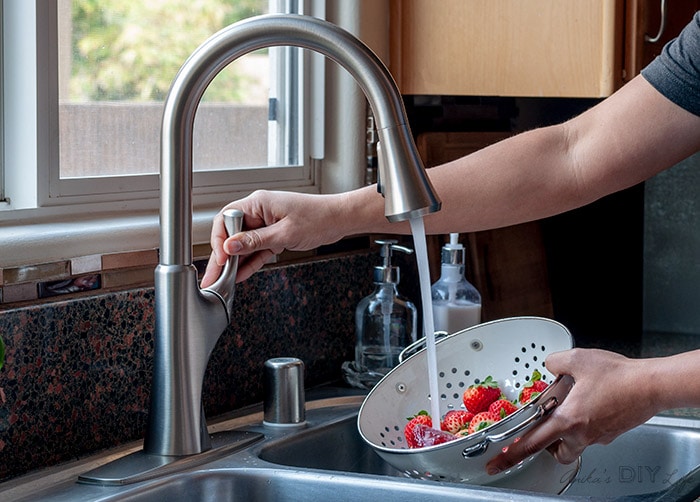A plumbing faucet breaking down regularly is one of the most obvious signs that your faucets need to be replaced by plumbing experts at Broussard Services. However, instead of waiting for the faucet to break down completely, there are warning signs indicating that your faucets need to be replaced. Read on to learn about these signs.
Warning Signs Indicating When To Replace A Faucet
Dripping faucet
Steady leaks are a common plumbing issue that can affect any faucet. When you begin to hear unusual dripping sounds from your kitchen or bathroom faucets, it could be a result of a deteriorating valve, faulty O-ring, damaged cartridge, and others. Though some of these damages can be repaired, it would only buy you a little time before needing a complete replacement.
Spitting Stream Of Water
A normal faucet releases a full, consistent flow of water. If you notice that the faucet is splitting the water, it could be caused by a blocked filter. Sometimes, particles can build up on the filter at the aerator of the faucet. When this occurs, you can unscrew the aerator and rinse off the particles. If splitting continues after you’ve cleaned the aerator, it could be that the faucet is damaged internally.
Squeaky Faucet
Sometimes, your faucet’s handle can begin to make squeaky sounds; if this happens, you’ll need prompt repair. You can unscrew the handle and oil the interior part of the handle with petroleum jelly. If this doesn’t fix the problem, you should call your problem to have the faucet replaced.
Age Of The Faucet
Like every home fixture, faucets also grow old and rickety. In general, most faucets have a lifespan ranging between 15 to 20 years under normal circumstances. Therefore, you should consider replacing your faucets when they’ve spent a significant part of their lifespan.
Consistent Repairs
Faucets develop minor faults that can be easily fixed without needing replacement. However, when you’re constantly calling your plumber to resolve various minor issues, then you should consider replacing your faucets. The money you’ll spend on constant repairs will ultimately be more than complete replacement costs.
Mineral Buildup
Mineral buildup along the water pipes has obvious effects on the faucets. Some of the signs often include greenish stains and rust. These stains can make the faucet look dirty and unappealing. If the stains are minor, they can be washed off with vinegar. But if there are lots of stains, you’ll need to replace your faucets.
A Desire For A Newer Model Of Faucets
Old faucets are good, but they’re sometimes less stylish and efficient. Some older faucets can waste up to 3 to 5 gallons per minute; this means more utility bills to pay. Thankfully, there are newer models of plumbing faucets that run more efficiently, waste less water, and can help reduce your utility bills.
Low Water Pressure
If the components of your faucets are in good shape and the water pressure is low, it could be caused by poor installation. Damage valves and broken internal components also cause a drop in water pressure. The best way to troubleshoot this problem is to call your plumber to inspect your faucets. After a professional inspection, your plumber will suggest the best solution to the problem; it could be to replace the faucet or repair the faucet.
Damaged Sink
In some cases, your faucets may be in perfect condition, but the sink could be damaged. In a case like this, both the sink and the surrounding fixtures, such as the faucet and pipes, will need to be replaced. This is because, most times, when a damaged sink is being replaced, the process can damage the existing faucet. Also, the old faucets might not be compatible with a new sink.
Noisy Faucet
Aside from the squeaky sound mentioned earlier, damaged faucets also produce other sounds, such as screeching, clunking, and clinking. Each sound points to various damaged components. If you hear a screeching sound, it could be that the rubber washer in the faucet has become hardened. A clunking sound mostly indicates that the sound’s internal parts are cracked or broken. When you hear such sounds, be sure to call your plumbing company to inspect your faucets.
The bottom line is that most times when faucets begin to malfunction, it is a clear sign that you need to call your plumber. Your plumber is in the best position to tell you whether your faucets need replacement or repairs.







